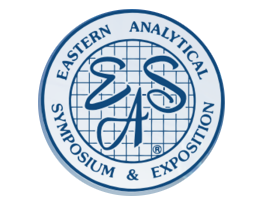EAS’s Outreach Program offers four seminars essentially for high school teachers and students during the November meeting. Each seminar has outstanding presenters from academia and industry. The goal of each seminar is to demonstrate the advantages of a career in chemistry. The 2022 student seminar registration is free for middle & high school students with their teachers; seminars are included in the full time college student registration fee of $30. Students are encouraged to visit the Exposition after the seminar.
Introduction to Forensic Chemistry
Sunday, November 13, 2022
Registration Limited to TEACHERS ONLY
1:00 pm to 4:00 pm
Dr. Michelle Carlin, Rutgers University, will give an introductory lecture on forensic toxicology and drug analysis followed by an interactive series of experiments that could be transferred to your own class-room. The experiments have been designed with readily available glassware and chemicals that you will already have or would be easy to obtain..
Cheese Chemistry
Monday, November 14 ,2022
10:00 am to 12:00 pm
Join Jeanne Berk of Cedar Crest College to learn about cheese making chemistry. In this lecture you will learn about the steps involved in making cheese, the texture and the flavors of cheese, and the important chemical reactions and compounds which give one of our favorite foods its unique taste!
‘Wow, it can be used to analyze that!’
Taking Advanced Analytical Tools and Applying Them to Everyday Life
Tuesday, November 15, 2022
10:00 am to 12:00 pm
Dr. John Wasylyk, Bristol-Myers Squibb, will explain how chemistry is the science that investigates the composition, the properties and transformations of the atoms that form matter. Analytical chemistry is one of the branches of chemistry that best integrates the complex theories into everyday practical applications. It is the process of isolating specific compounds, identifying those compounds, and determining how much of the compounds are in a product. Analytical chemistry is used in many different areas of science and even what may be considered non-science. It can be used to answer a wide range of question such as: how much cholesterol is in your blood, to identify an unknown compound found at a crime scene, to find out what the surface of Mars is made of or to determine if that painting an original or a fake. Whether you see a scientific instrument in action (think of airport screening when they take a swab of your luggage) or know that someone analyzed your soda to make sure they added real and not artificial sugar, you know those instruments are always doing something for us. We will cover applications involving a wide range of spectroscopy-based analytical instruments and have hands-on instruments that are used every day in the world around us, that keep us safe and knowing that what we pay for is what we are getting.
Students and teachers must pre-register to reserve a space. All seminars take place in the Crowne Plaza Princeton Conference Center in Plainsboro, NJ. Please contact Eastern Analytical Symposium at askeas@eas.org or visit our website at www.EAS.org for more information. Registration will open in early July.

